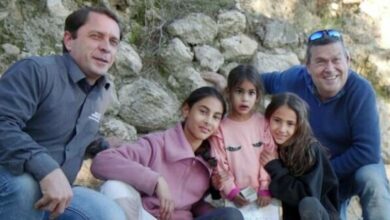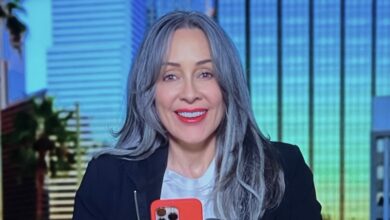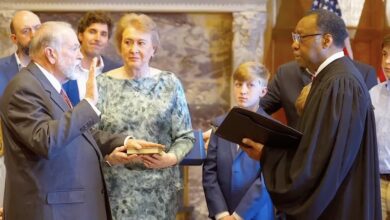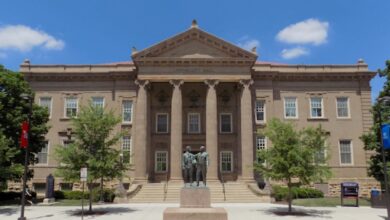Israeli start-ups work to sow joy, hope in hearts of disabled
Millions of disabled people around the world endure struggles and hardships that others can’t imagine. But organizations in Israel are determined to provide real-life solutions to their daily challenges by partnering with kindred groups around the world.
Josef Abramson just received a gift not available in any store. Five years ago, a war injury left him unable to play the musical instruments he loves.
“These special people behind me have been working really, really hard to develop a very cool gadget that will help me play guitar better again, help me play drums again,” Abramson shares. “So it looks like it’s going to work, so I’m very, very excited and very, very thankful.”
“Restart’s mission is to help wounded soldiers to get out of the injury cycle and to get back into normal life. One of the ways to empower the soldiers is through Makers for Heroes where we make them do one thing the injury took away from them. Once they do that one thing, it changes their whole state of mind and changes their whole feeling of capability. It’s amazing to see how we’ve grown from 50 volunteers for 5 projects to over 200 for 19 challenges”, according to Restart’s CEO Niv Efron.
Restart partnered with the global mission of Tikun Olam Makers, or TOM for short, to help the disabled.
“We launched TOM inspired by a bold vision called for the State of Israel and Jewish communities around the world to collaborate in helping a quarter of a billion people within a decade in all continents of the world, in all countries, in all cities, in all religions and all cultures,” said TOM Founder and President Gidi Grinstein.
At Makers for Heroes, engineers, programmers and product designers create solutions to help wounded veterans like 34-year-old Dror Zuckerman. He needed a special brace to help with weightlifting.
“This is the brace, it also has here the logo, this is the rubber. This is how it functions. I put it on my leg like this. Very light. Go to the gym. Go to the Cross Fit and whatever I want. Very good,” Zuckerman said.
“Restart’s vision is to have every wounded soldier should be back to normal life and integrated into society and TOM(‘s) vision is to take everything that was done here take it to all the people in the world that need it. So together it’s bigger than separately. It’s basically incredible,” said Restart’s Chairman and TOM Israel, CEO Shoshi Rushnevsky.
The company’s vision goes far beyond the war wounded.
“Our vision was to focus the remarkable energy and creativity of Israel’s start-up nation, to focus that energy on the needs of the people who are living at the bottom of the pyramid, people living with disabilities, elderly and poor communities,” Grinstein said.
They focus on needs the mass market or governments won’t reach.
That happens when the condition is rare, when the people are poor or when the product requires a lot of customization upon delivery so it cannot really be mass produced,” said Grinstein.
Restart helped fifty-nine-year-old grandfather Michal find a leg up to help him get up in the world.
“I’m coming to this project because before I have a problem in my leg, it’s very heavy for me and now my group, my team give me a small leg and now I’m climbing very fast. And I’m very happy because it’s a brand new present for me,” said Michael.
AT&T Foundry collaborated with the Israeli start-up Wearable Devices to help the disabled pianist.
“We were able to build a model that allows Ahad to get back to playing piano using his weak hand as well which also has rehabilitative technology that has abilities beyond what we expected and we’re very honored and thankful that we could help make his dream come true,” said AT&T Foundry Direction Ofer Cohen.
All of the innovative technology becomes a gift to the world.
“The trick of TOM is that the intellectual property of all TOM teams around the world is deposited in the public domain. Which basically means it belongs to nobody but it belongs to everybody,” Grinstein said.
Within five years TOM has spread to nearly twenty countries and foresees a worldwide web of partners to help the disabled.










